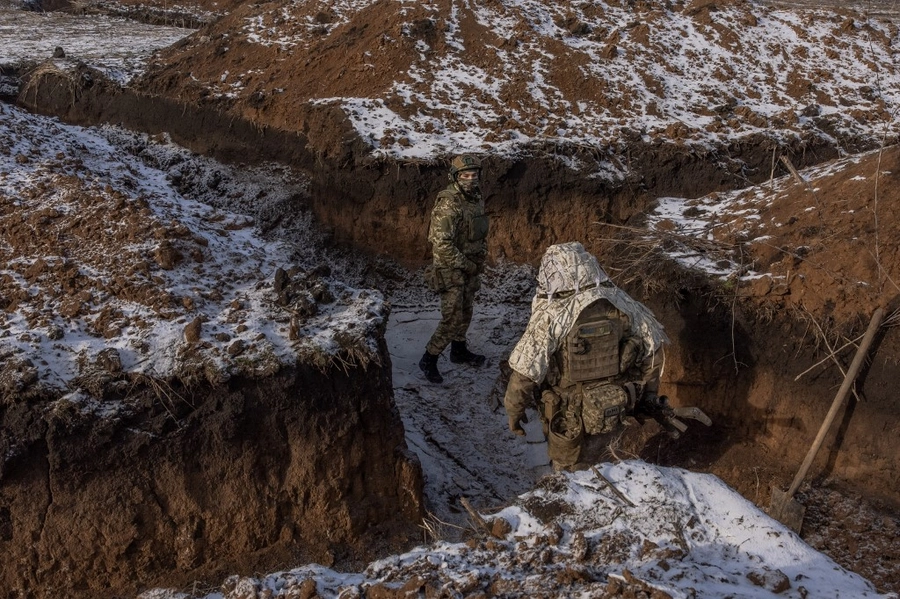After spending another night on watch duty, a Ukrainian soldier near the country's northeastern front crashed out on a bunk inside his dugout, a cap resting over his closed eyes.
It is -8 degrees Celsius (18 Fahrenheit) outside, snow crunching underfoot as troops from the 41st Mechanised Brigade shuffle around their trenches, east of the town of Kupiansk.
JOIN US ON TELEGRAM
Follow our coverage of the war on the @Kyivpost_official.
"It's hard, but we're holding on," said Vadim, a 31-year-old member of the brigade.
"We have no choice," he added.
Nearly two years of unremitting trench warfare have pushed Ukraine's troops to the brink of exhaustion.
Its army is struggling to find men for the front, in contrast to the outpouring of patriotic volunteers at the start of the war.
Kyiv has kept its losses secret, but the latest US estimates published in August by the New York Times put the death toll at nearly 70,000 and the number of wounded at up to 120,000.
The town of Kupiansk and surrounding Kharkiv region were liberated from Russian occupation in September 2022 following a lightning push by the Ukrainians.
But since the summer, Russian forces have again been on the offensive here without making any major progress.
"They're constantly carrying out attacks, advancing," Vadim said.
He said adrenaline got them through the first year, when they "weren't afraid of anything".
"But now, we're simply tired. Because two years in, we haven't seen the light at the end of the tunnel," he said.

US Threatens to Cut Starlink Access in Ukraine If No Rare Earth Minerals Deal Signed
Ukrainian soldiers of the 41st brigade stand in a trench near the frontline, outside Kupiansk / AFP
- 'Can't take it anymore' -
President Volodymyr Zelensky warned in December the military wanted to mobilize up to half a million people to battle the 600,000 or so Russians deployed in Ukraine.
But earlier this month, parliament refused to debate a controversial bill aimed at mobilizing more soldiers, amid fierce criticism from the public and lawmakers.
For an army that has been struggling to fill its ranks, let alone reprieve its long-serving frontline troops, this was a painful blow.
"Of course we want demobilization, because it's hard. I haven't seen my family in six months," said Vadim.
But he added: "It's not a matter of them giving us 10 days. That wouldn't be of any use... What kind of rest would that be?"
"If they gave us at least six months off, that would be better," he said.
Calls to demobilize troops come at a difficult time for the army, which is now facing renewed Russian pressure across the eastern front.
After a year of grinding warfare that has failed to yield major territorial gains on either side, Moscow is throwing more manpower into the conflict and has been upping strikes on Ukrainian positions.
"The intensity of the hostilities aimed at us is now quite high, and there are more wounded than we'd like," said Oleksandr, a 20-year-old soldier who also refused to give his last name for security reasons.
Oleksandr pointed out that "today, generally speaking, it's older men who are mobilized", so there are reserves that can be called up.
"We need mobilization and we have the means to do it."
But the patriotic impetus of the early months, when Ukrainians went en masse to the front voluntarily, is no longer there.
"Since the first days of the invasion, we've almost always been on the front line...," said Vadim.
"The guys are tired. Mentally, physically, they can't take it anymore," he said.
You can also highlight the text and press Ctrl + Enter












